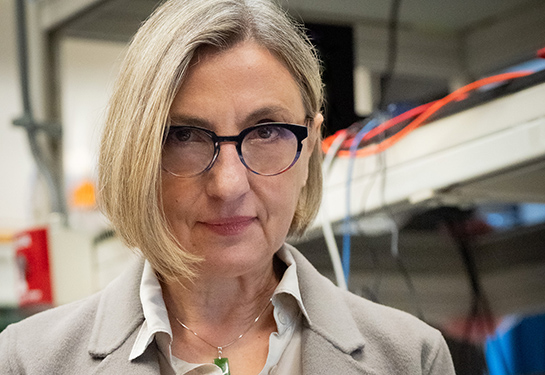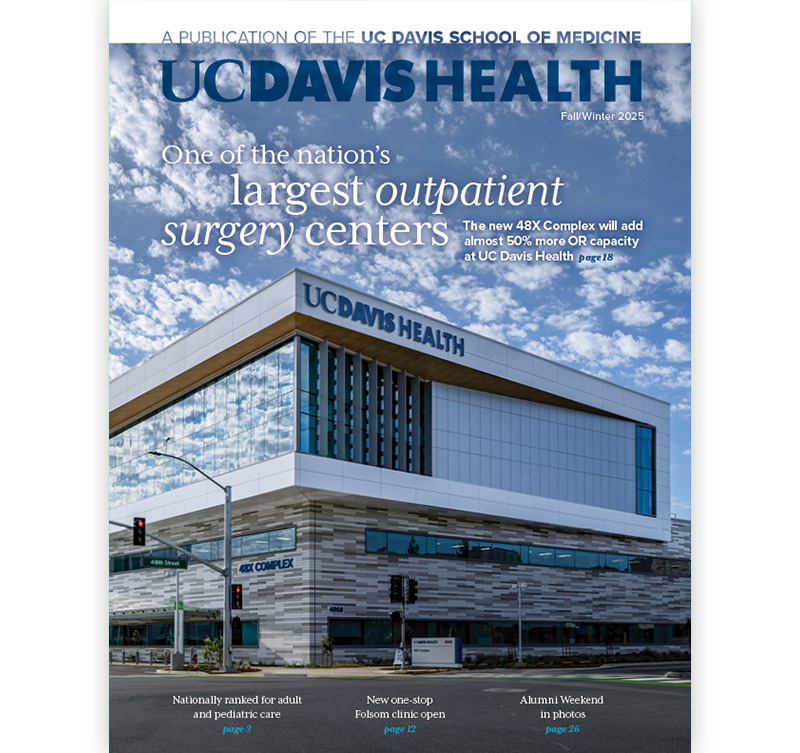Top 10 questions about the UC Davis Redwood SEED Scholars Program
Applications for fall 2025 open for 4-year, non-degree program for individuals with intellectual disabilities
Applications are open for the fall 2025 class of UC Davis Redwood SEED Scholars. This four-year, non-degree inclusive program is for individuals ages 18-23 who have an intellectual disability.
Funded through a U.S. Department of Education grant, the program is in its fourth year. Currently, 41 students are enrolled, and the first group of scholars will graduate in spring 2025.
“It’s incredible to watch the growth from the current seniors, from their first year to now,” said Beth Foraker, co-director of the program.

The scholars’ abilities to live independently, participate in their workplaces and the larger community is happening and they feel really proud of it.—Beth Foraker, co-director, Redwood SEED Scholars
A unique, first-in-California program
The Redwood SEED Scholars Program is a collaboration between the UC Davis MIND Institute; the Office of the Vice Chancellor of Diversity, Equity, and Inclusion; and the Division of Continuing and Professional Education. It is named for the T. Elliot Weier Redwood Grove on the UC Davis campus.
Scholars live on campus, attend classes and have internships and jobs. The dozens of students are supported by more than 100 mentors.
“The scholars’ abilities to live independently, participate in their workplaces and the larger community is happening and they feel really proud of it,” Foraker said.
Her advice to future applicants: “I encourage you to not self-select out. Don’t limit yourself. Imagine bigger.”
Families often have questions about how the program works. In this Q&A, Foraker answers the 10 most-asked questions. Answers have been edited for length.
1. What is the Redwood SEED Scholars Program?
Redwood Seed Scholars is a four-year college program at UC Davis for students with intellectual disability.
2. What is intellectual disability?
Intellectual disability is generally an IQ of 70 or lower, but there are other things that can play into this like adaptive behaviors. Just because you are autistic or are in the regional center system does not mean you have an intellectual disability.
Learn more about the program and intellectual disability.
3. Why does the program only take students from California?
We don’t take students outside of the state of California because the need is too great in our state. We have 66,000 college-aged students with disability in our state sitting on the sidelines waiting for a chance and we only take 8-12 students at a time, so the need is desperate in our state.
4. How much does the program cost?
The California Department of Rehabilitation has supported all of our scholars with tuition, as well as transportation (a new bike) and technology (a new phone and a new computer). In addition, we are a vendor with the state of California regional center system. They fund the room and board piece.
That means that if you have an employment goal for the Department of Rehabilitation and an employment goal and an independent living goal that matches what our program offers, it is possible to have the program fully funded for families.
5. What kinds of classes do the scholars take?
Redwood SEED Scholars take two different kinds of classes. They take foundational classes like literacy and math and self-regulation that are specific just for them. They also take UC Davis courses for credit, which is extremely special and unusual. They develop concentrations of study with those specialty classes in their area of interest.
6. Do students work during the program?
Employment is what we are all about. We want our students to graduate and be able to make a living wage. Their first year, our students begin in unpaid internships. Sophomore year, they begin paid work and we aim to have every scholar complete two paid jobs. In addition, junior year and senior year, we work with volunteering opportunities. We want our students to be robust in their workplace skills development.
7. Do Redwood SEED Scholars earn a degree?
Redwood SEED Scholars graduate with a meaningful credential. They do not graduate with a Bachelor of Arts or Bachelor of Science degree. This meaningful credential is developed in collaboration with Continuing Education and Professional Services here at UC Davis.
8. How are the students supported?
We are a holistic program, and our scholars are supported in each part of our program. They have academic mentors, residential mentors, health and wellness mentors, social inclusion mentors and employment mentors. Our mentors receive training, and they come from UC Davis. They are undergrads, grad students or even students at UC Davis School of Medicine.
9. What are the basic requirements of the program?
The most important one is that you have to have a documented intellectual disability. No. 2, you have to be a resident of the state of California. No. 3, you have to be able to be independent for up to four hours, and No. 4 is that you are between the ages of 18-23 at the time of application. You do not need a high school diploma to apply to our program. We accept certificates of completion or diplomas.
10. What is the most important skill needed to succeed in the program?
The most important skill for being successful is self-determination. The scholar has to want to be here, has to want to do the hard work. Every single day is a ton of learning and students have to be motivated to do that learning.
Applications close Jan. 3.
The UC Davis MIND Institute in Sacramento, Calif. is a unique, interdisciplinary research, clinical, and education center committed to deepening scientific understanding of autism and other neurodevelopmental conditions. It is a highly collaborative center, bringing together families, researchers, clinicians, community leaders and volunteers with the common goal of developing more personalized, equitable, and scientifically proven systems of support and intervention. The institute has major research efforts in autism, fragile X syndrome, chromosome 22q11.2 deletion syndrome, attention-deficit/hyperactivity disorder (ADHD) and Down syndrome. More information about the institute and its Distinguished Lecturer Series, including previous presentations in this series, is available on the website.






